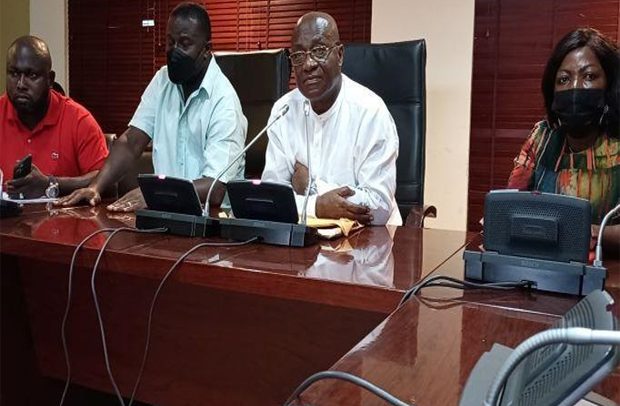Osei Kyei-Mensah-Bonsu
The Majority Leader and Minister of Parliamentary Affairs, Osei Kyei-Mensah-Bonsu has categorically stated that no Member of Parliament (MP) is against the bill seeking to criminalise activities of LGBTQ+ people in Ghana.
The Promotion of Proper Human Sexual Rights and Ghanaian Family Values Bill, 2021, which is before Parliament, has generated intense debate after a group of Ghanaian intellectuals, in a memorandum, called on the legislature to reject the bill.
They argued the proposed law will violate the right to “inviolability of the person” and all the key fundamental freedoms guaranteed under the nation’s constitution.
Addressing the media in Parliament yesterday, Mr. Kyei-Mensah-Bonsu said the issues contained in the bill are matters all MPs agree in principle.
He asserted that Ghanaians have their own concept of “what is right and what is wrong,” and indicated that MPs would do “what is right for the people of this country.”
“Article 125 says justice emanates from the people. We have our own concept of what is right and what is wrong. The issues contained in this bill before us are matters that all of us agree. I am not sure that any Member of Parliament (MP) will be against the principles of this bill,” he stressed.
He continued, “I am an African, Ghanaian, Ashanti, and Kwabre man; I have my own values and upbringing. That one is shaped by my traditional upbringing,” adding “along the line, a Christian as I am, borne into Assemblies of God, my faith also impacts on my upbringing, but that is not the only thing that shaped my upbringing.”
He said, “I don’t know of any ethnic group in this country that will applaud this [LGBTQ+].”
The Majority Leader, however, said Ghana has a constitution and that MPs would operate within the ambit of the constitution, saying “and that is why I said we would do what is right for the people of this country.”
Mr. Kyei-Mensah-Bonsu indicated that he was aware that some people had questioned whether there is the need for a new law to deal with LGBTQ+ activities in the country when provisions in many statutes exist already to address the issue, while others had said those provisions are inadequate and therefore require tightening up.
Fine Tuning
“To me, if it is that we recognise that there are gaps in existing statutes or they are not strong enough and need tightening, it means we accept the principle that this whole thing is something that is lost with public morality in this country,” he said.
He pointed out that how to proceed with the formation of the law to address the concerns of the Ghanaian society is “what is before us,” adding “where there is a will, there is always a way. So whatever happens we should be able to deal with it.”
Popular Participation
The Parliamentary Affairs Minister said he was deeply impressed with the popular participation exhibited by the citizenry on the anti-gay bill.
“We have listened to the concerns expressed and Parliament will do the needful [thing]. My plea is that those of them who are making contributions and calling into radio stations and television stations should cut off the emotion and sentiment,” he said, adding “once we do that it clouds the rationality of the issues. So let’s cut out emotions and sentiments.”
He said he is aware of the fact that some people have raised issues about the bill vis-a-vis Article 108, adding “I am not oblivious of this and I guess when we come to the bridge we shall cross it. When we came to consider the Children’s Act – that was in 1998/99, it was started by CSOs which felt that we should handle it.”
“Along the line, this matter was raised and the government came in and assumed control and partnered the original sponsors, and crafted it in a way that ended in Parliament,” he explained.
He, however, pleaded that the excitement generated should not go away, after the passage of the bill, saying “the citizens shouldn’t go to sleep.”
“There are many other outstanding bills we have not been able to deal with them, including and in particular the imperatives of Article 22, property rights of spouses.
By Ernest Kofi Adu, Parliament House


